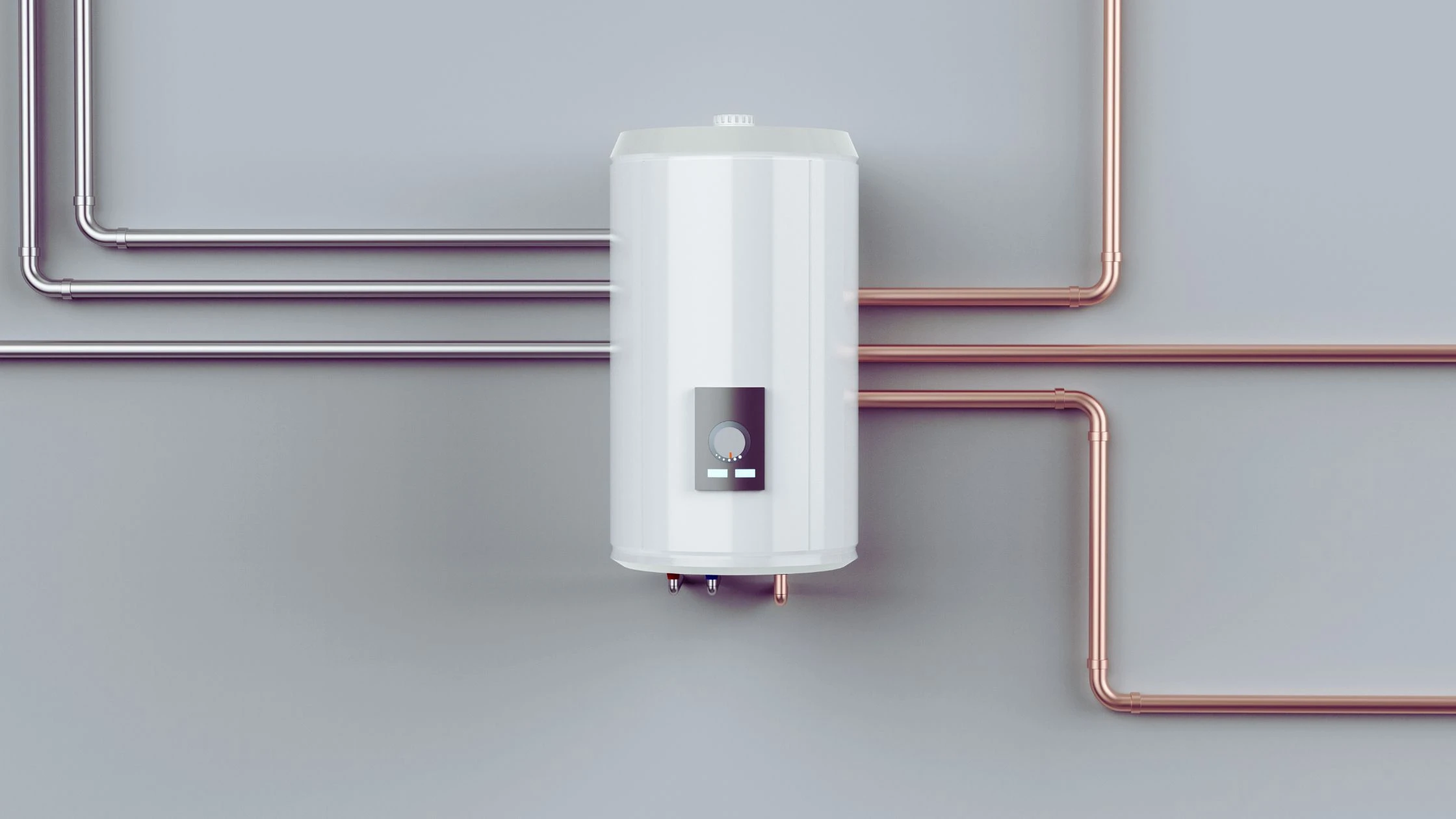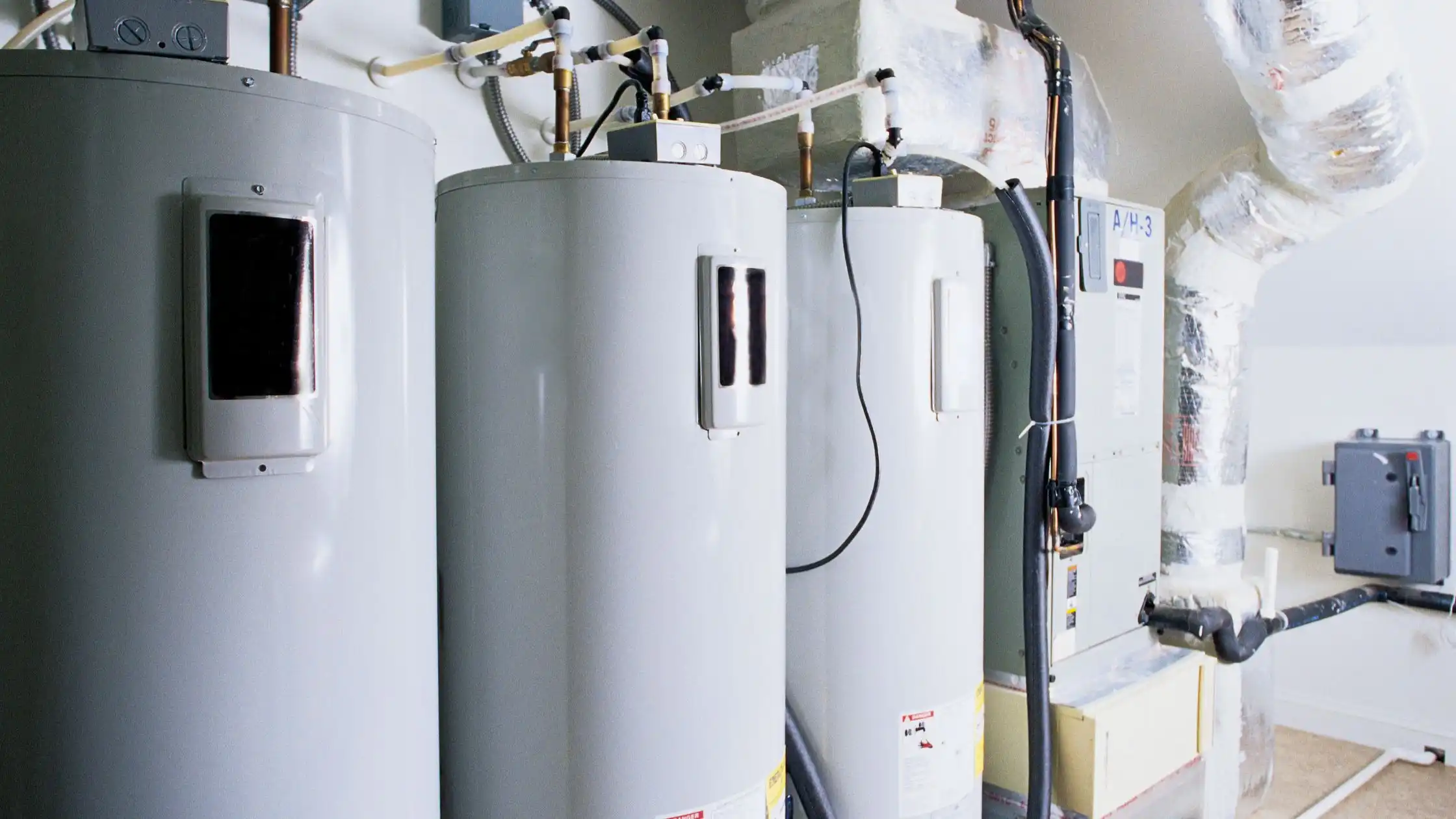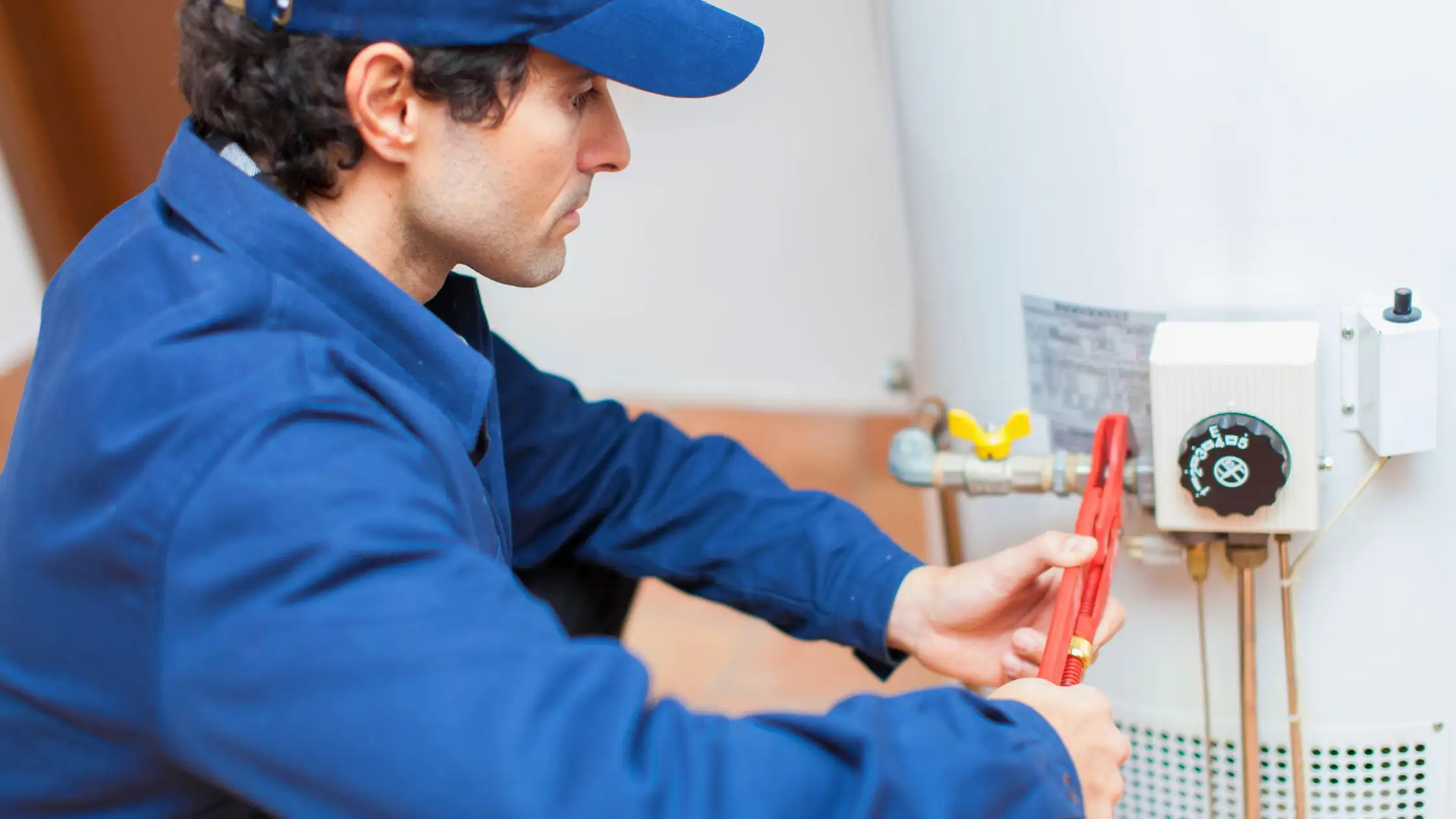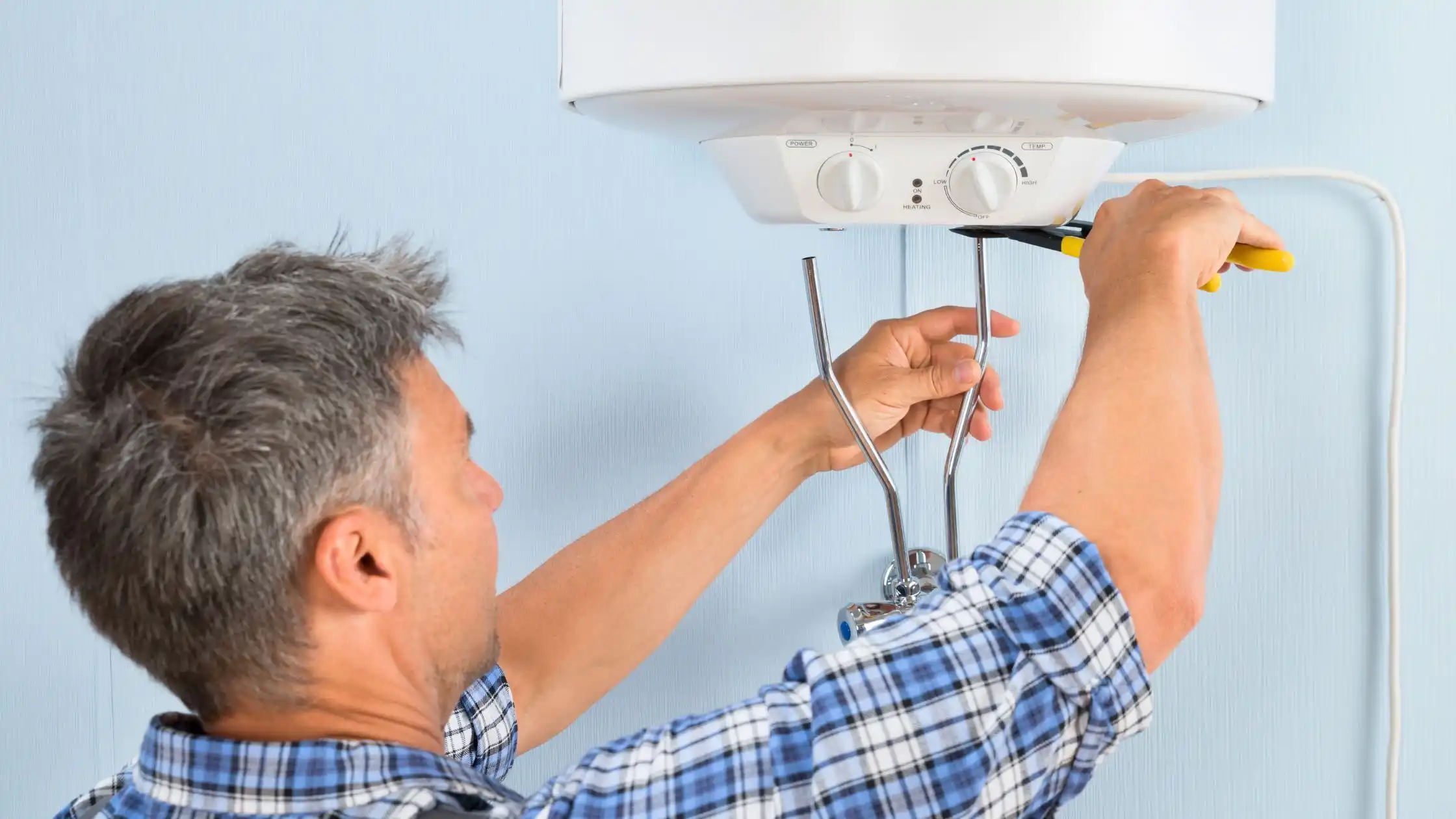Few elements of our home comfort are as crucial as an uninterrupted hot-water supply. A working water heater is essential for taking a shower, washing dishes or doing your laundry. But do you ever wonder how long does it take for a water heater to heat up? And the answer is not as simple as you might think. Heating time is affected by many factors such as what type of water heater you have, the size and how cold the incoming water is. Read on for a detailed look at these and other factors, and everything you need to know about how long does it take for a water heater to heat up.
How Long Does It Take for a Water Heater to Heat Up?
For those in a hurry, here’s a quick reference guide to typical heating times by water heater type:
| Water Heater Type | Average Heating Time |
|---|---|
| Gas water heaters | 30-40 minutes for a full tank |
| Electric water heaters | 60-80 minutes for a full tank |
| Tankless water heaters | Instantaneous (3-5 seconds) |
| Heat pump water heaters | 2-3 hours for a full tank |
| Solar water heaters | 4-8 hours (highly dependent on sunlight conditions) |
Now, let’s also dig a bit deeper and see what factors come into play with these heating times, and what you can do to smoothen things out with your water heater.
Factors That Affect Water Heater Heating Time
1. Water Heater Type
The type of water heater you have is the most significant factor determining heating time:
Gas Water Heaters
Gas water heaters burn a powerful burner to heat water from the base of the tank. To heat a full 40-50 gallon tank typically takes 30-40 minutes, depending on the size of the unit. Gas heaters recover quickly, adding approximately 30-40 gallons of hot water per hour.
Electric Water Heaters
Electric water heaters contain heating components that are submerged in the water tank. They’re more efficient than gas models but much slower, requiring 60-80 minutes to bring a full tank to heat. General recovery rates are 20-25 gallons/hour.
Tankless Water Heaters
Tankless water heaters (on-demand) deliver hot water almost immediately, typically in 3-5 seconds after opening the tap. However, they have flow rate limitations themselves, usually 2–5 gallons per minute, depending on the model and the temperature of the incoming water.
Heat Pump Water Heaters
These heat-pump models pull heat from the surrounding air to heat water. The most economical but slowest way to heat a full tank, a 2-3 hour investment.
Solar Water Heaters
Wind and solar systems rely entirely on sunlight availability. On a sunny day, they could heat a tank in as 4-8 hours, but it takes longer in cloudy conditions.
2. Tank Size
It’s simple math — larger tanks require more heating time:
- 20-30 gallon tanks: Quickest heating time (best for 1-2 person households)
- 40-50 gallon tanks: Bulk size for the majority of homes (3-4 individual families)
- 60-80 gallon tanks: Slowest to heat (the largest families or heavy use)
3. Initial Water Temperature
The colder your incoming water is, the longer it will take to get to the target temperature:
- Winter ground (35-45°F): Much longer heat-up times (up to 1.5-2x summer rates)
- Summer groundwater (55-65°F): Faster heating times
- Regions with year-round warm groundwater: Faster, pervasive heating
4. Target Temperature Setting
Most water heater settings are preset to 120°F (the recommended safe temperature), but your desired temperature will influence heating time:
- Lower settings (110-115°F): Faster heating time, lower energy bills
- Standard setting (120°F) — The heating time and energy consumption are balanced.
- Higher settings (130–140°F): Higher time to heat up, increased cost of energy, and increased risk of scalding
5. Age and Condition of the Water Heater
Don’t underplay the role of your unit’s condition:
- New water heaters: Work at optimal efficiency
- 5+ year old heaters: May have 10-15% slower heating times
- 10+ year old heaters : Can be 20-30% less efficient than new
- Heaters with sediment buildup: Efficiency decrease and longer heating times
First-Time Heating vs. Recovery Time
An important distinction many homeowners miss is the difference between:
First-Time Heating
This is how long it takes to heat a completely cold tank of water. These are the longer times mentioned in our quick reference guide.
Recovery Time
Recovery time refers to how quickly your water heater can reheat after you’ve used a portion of the hot water. This is typically much faster than first-time heating:
- Gas water heaters: 20-30 minutes to recover
- Electric water heaters: 30-60 minutes to recover
- Tankless systems: No recovery time needed—they heat on demand
How to Reduce Water Heater Heating Time
Tired of waiting for hot water? Try these practical solutions:
1. Maintenance Matters
Regular maintenance dramatically improves heating efficiency:
- Flush the tank annually: This removes sediment that insulates water from heating elements
- Check heating elements/burners: Replace faulty components
- Inspect the thermostat: Ensure it’s working correctly
- Insulate older tanks: Reduces heat loss and improves efficiency
2. Consider Your Usage Patterns
Smart usage can maximise hot water availability:
- Schedule high-demand activities: Space out showers, laundry, and dishwasher use
- Install low-flow fixtures: Reduces hot water consumption
- Use cold water when possible: Save hot water for essential uses
3. Upgrade Options
If faster heating is a priority, consider these improvements:
- Install a recirculation system: Keeps hot water readily available at fixtures
- Add a point-of-use heater: Small tankless units for distant fixtures
- Upgrade to a higher-powered unit: Higher BTU gas heaters or higher-wattage electric models heat faster
- Switch to a tankless system: Eliminates waiting time completely
Troubleshooting Slow Heating Issues of Water Heaters
Is your water heater taking longer than normal to heat up? These common problems might be the culprit:
For Gas Water Heaters:
- Dirty burner: Reduces heating efficiency
- Gas supply issues: Check the gas valve and supply line
- A faulty thermocouple: Prevents the burner from staying lit
- Pilot light problems: Inconsistent heating if the pilot frequently goes out
- Inadequate ventilation: Reduces combustion efficiency
For Electric Water Heaters:
- Burned-out heating element: One or both elements may need replacement
- Tripped circuit breaker: Check your electrical panel
- Faulty thermostat: Unable to properly regulate temperature
- Incorrect wiring: Particularly in DIY installations or repairs
For All Water Heaters:
- Excessive sediment buildup: The #1 cause of reduced efficiency
- Improper sizing: An undersized unit for your household needs
- Extreme cold weather: Can dramatically increase heating time
- Failing dip tube: Cold water mixing with hot water in the tank
When to Replace Your Water Heater
Sometimes, slow heating indicates it’s time for a replacement:
- Age over 10-12 years: Standard lifespan for most water heaters
- Persistent heating issues: Despite repairs and maintenance
- Visible rust/corrosion: Indicates tank integrity issues
- Increasing energy bills: A Sign of declining efficiency
- Constant hot water shortages: The Unit can no longer meet your needs
Conclusion
Understanding your water heater’s heating time empowers you to make informed decisions about maintenance, usage, and potential upgrades. Whether you’re dealing with an ageing unit that’s slowing down or considering a switch to a faster-heating system, the information in this guide will help you maximise hot water availability while minimising energy costs.
Remember that regular maintenance is the most cost-effective way to ensure optimal heating performance, regardless of your water heater type. For persistent issues, consulting with a qualified plumber can help identify the best solution for your specific situation.
By implementing the tips and strategies outlined here, you can enjoy more consistent, reliable hot water with minimal waiting time, making those unexpected cold showers a thing of the past.
FAQS About Water Heating Times
Why is my water heater taking longer to heat up than usual?
This might be the result of sediment buildup, a faulty heating element, or an ageing unit. Having regular maintenance done can help detect, and even prevent, these types of issues.
Can I speed up the heating process?
Sure, by replacing it with a more efficient model, insulating your tank, or installing a recirculation pump.
How do I know if my water heater is working efficiently?
If your water heater is taking much longer than usual to heat or if you’re frequently running out of hot water, it could be time for a check-up or replacement.
Is it normal for a water heater to take over an hour to heat up?
For electric tank water heaters, this is normal. However, if you have a gas heater or a tankless model, this could indicate a problem.









